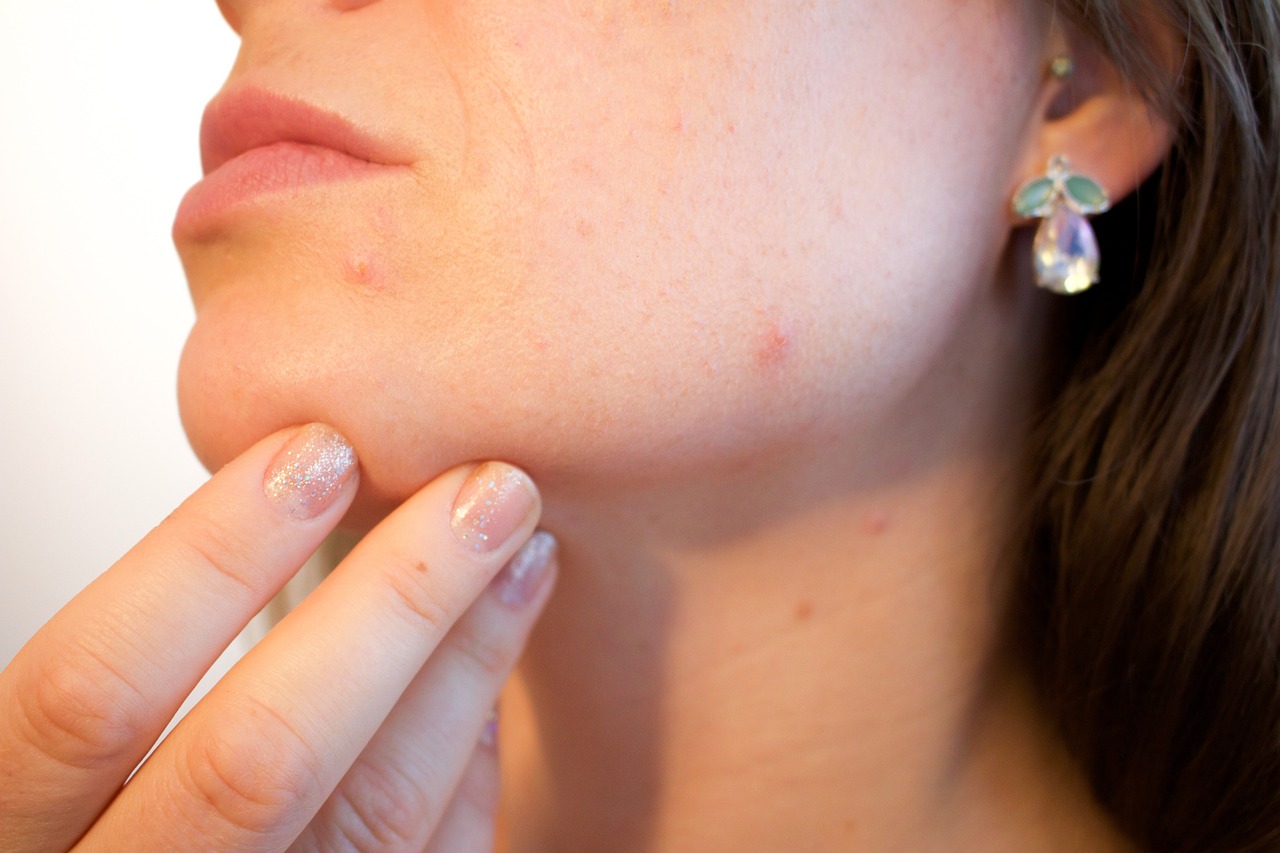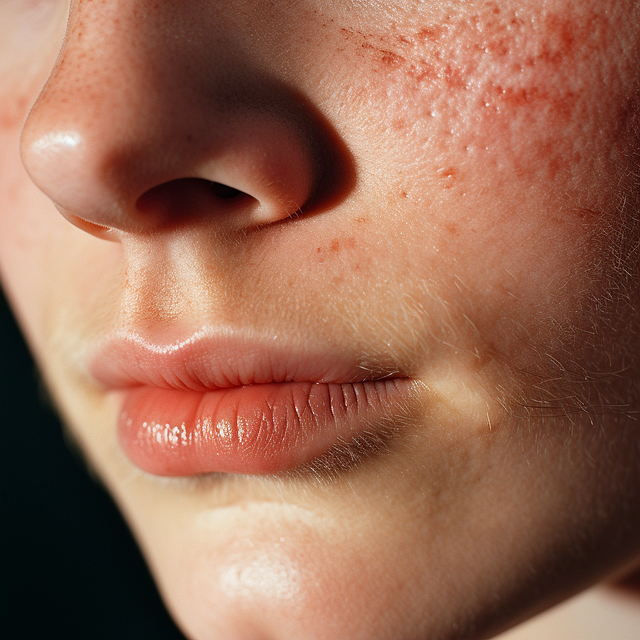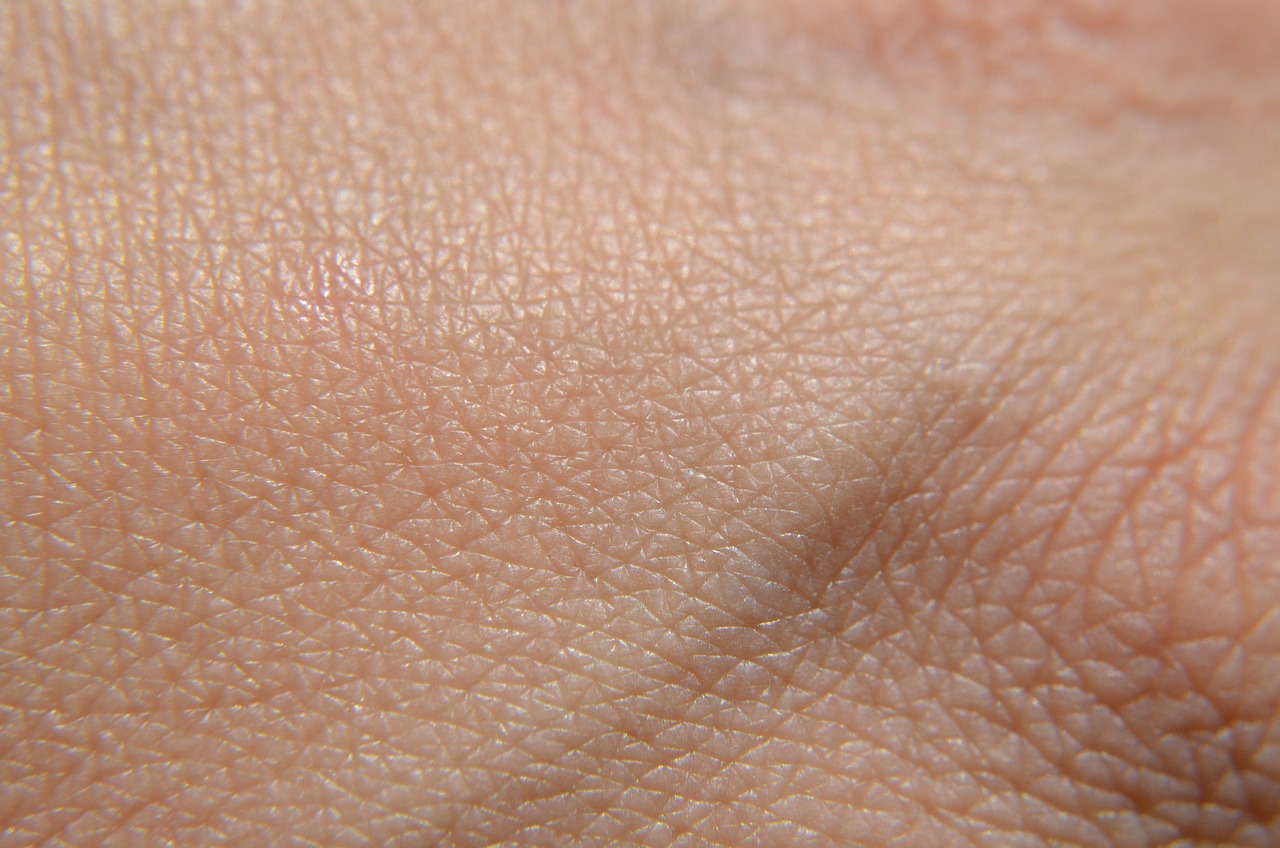Contrary to appearances, problems with severe and resistant forms of acne affect a lot of people. Fortunately, today’s medicine already knows several ways to alleviate this unpleasant condition. Among others, isotretinoin (Isotretinoin) turns out to be effective.

What is Isotretinoin?
Isotretinoin is an active substance that is a derivative of vitamin A. It can be found primarily in the composition of some medicinal products used to treat severe acne – an example of such a product is, for example, Izotex. It is indicated for use primarily when milder medicinal products fail. This substance has a very strong effect, which is why in our country a doctor’s prescription is required to purchase medical products containing it.
How does isotretinoin work?
It inhibits the growth of the sebaceous glands, which in turn leads to a decrease in their activity and normalization of sebum secretion. Isotretinoin has proven effective in treating many different types of acne. It effectively eliminates, for example, nodular cystic acne, concentrated acne, lumpy acne and phlegmon. It also has anti-inflammatory properties.
Indications and contraindications to the use of Isotretinoin.
Isotretinoin is indicated primarily in the treatment of severe forms of acne, as well as acne with a high risk of leaving permanent scars. It is especially recommended in situations where the use of milder drugs has failed. However, it can also be used by patients struggling with moderate or even mild acne, of course strictly following the doctor’s recommendations. Medicines containing isotretinoin may also be prescribed to you if you have mental disorders associated with acne, for example body dysmorphia.
Isotretinoin is characterized by strong action and condensed composition. Therefore, preparations containing it cannot be prescribed to every patient. Contraindications to the use of isotretinoin include:
- pregnancy and breastfeeding
- increased level of lipids in the blood
- excess vitamin A
- liver failure
- taking tetracycline antibiotics
- hypersensitivity to isotretinoin.
People using contraception and those who have previously reported depression or liver dysfunction should exercise particular caution when using preparations containing isotretinoin as the active substance.

Benefits of using isotretinoin
Preparations containing isotretinoin, such as Izotek or Izotex, are commonly prescribed to patients suffering from severe forms of acne that are resistant to treatment with other agents. This is due to the fact that such therapy brings many benefits. Isotretinoin:
- stops the development of inflammation associated with acne,
- reduces sebaceous glands and inhibits their activity,
- reduces the multiplication of Culibacterium acnes bacteria, which are closely related to the formation of acne,
- reduces the formation of blackheads.
Isotretinoin is a prodrug – this means that after intake, it is converted in the human body into various active metabolites – specifically tretinoin, 4-oxoisotretinoin and 4-oxotretinoin. The fact that they act in multiple directions means that the use of isotretinoin brings comprehensive results.
Isotretinoin – how to dose?
The exact dosage of the preparation whose active substance is isotretinoin is always determined by the doctor. Typically, a dose of 0.5 mg/kg/day is used at the beginning of therapy. Then it is individually modified for each patient, however, the therapeutic dose does not exceed 1 mg/kg/day – no clear benefits associated with exceeding this dose have been observed.
Isotretinoin can be used by adults, as well as children and adolescents over 12 years of age. The first symptoms of improvement in the skin condition are usually observed after about 4-8 months of therapy, however, the full course of treatment may last up to 16-20 weeks (sometimes even longer): It all depends on the selected dose of isotretinoin, as well as the effects of the therapy. For most patients, one session of isotretinoin treatment is enough to bring lasting results.
Unfortunately, some people may require additional treatment with other drugs. It may also happen that one course of treatment will not work – in such a case, it is recommended to repeat isotretinoin treatment after at least 6 months.

Side effects of Isotretinoin
Side effects may occur in anyone taking isotretinoin, although of course the risk of their occurrence is lower than the benefits of its use. Not everyone will experience all side effects, and their frequency varies quite significantly.
The most common side effects caused by the use of isotretinoin are symptoms related to vitamin A hypervitaminosis. These include drying of the mucous membranes of the nose and throat, cheilitis, and contact lens intolerance. However, these are not the only side effects regarding its use – relatively often the following appear:
- skin inflammation
- OB acceleration
- anemia
- platelet count disorders
- joint and muscle pain
- nosebleeds
- headaches
Less common side effects of isotrenine use include:
- mood changes (e.g. excessive aggression)
- hematuria and proteinuria
- baldness
- anaphylactic reactions
Please remember that these are only symptoms that can occur – it is also completely possible to use isotretinoin without any side effects. The appearance of abundant, bloody diarrhea means the need to immediately discontinue isotretinoin and consult a doctor.

Isotretinoin – interactions
Like most active substances, isotretinoin may interact with various substances. Therefore, you should always tell your doctor about any medications you are taking, even those available without a prescription. What substances should isotretinoin not be combined with?
- with vitamin A – it should be remembered that isotretinoin itself is its derivative. Therefore, when used simultaneously with preparations containing vitamin A, it may lead to the appearance of symptoms of hypervitaminosis.
- with tetracyclines – it is strongly recommended not to take drugs containing isotretinoin together with preparations containing tetracyclines. This combination may lead to an increase in intracranial pressure.
- corticosteroids – great caution is recommended when taking isotretinoin simultaneously with corticosteroids. This applies to both oral and topical medications.
Of course, like any other drug, isotretinoin should not be combined with alcohol.
What happens in case of an overdose of Isotretinoin?
If you miss a dose at the usual time, take it as soon as possible. However, patients are advised not to take a double dose to “catch up”. Symptoms of overdose may then occur – identical to the symptoms of acute hypervitaminosis of vitamin A. In such a case, nausea, vomiting, severe headache, irritability and skin itching may occur. When using drugs such as Izotex or Izotek, you should always remember to take subsequent doses on time and strictly follow the recommendations given by your doctor.







